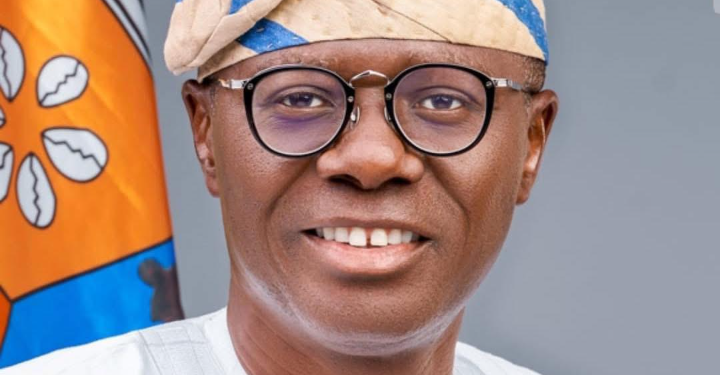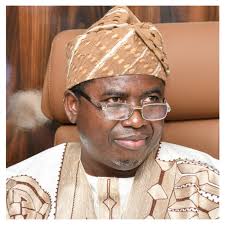By Dr Bolaji O. Akinyemi
I read with deep concern the unsigned and shameful document issued in the name of “Yoruba Elders Progressive Council (YEPC)” titled “Our Land, Our Identity: Lagos State Government Must Act Before We’re Made Strangers at Home.” It is unfortunate that in 2025, in a democratic Nigeria where the Constitution reigns supreme, some cowards cloaked in the name of Yoruba elders still find it acceptable to publish ethnic bile and incite division without the courage to sign their names.
As a proud Yoruba son, a senior citizen, and a disciple of the progressive school of Chief Obafemi Awolowo, I cannot keep silent while these masked agitators try to drag the Yoruba identity into the mud of tribal bigotry and reckless political opportunism.
Let me now respond, point by poisonous point, to their disturbing and dangerous narrative.
- The Igbo Presence in Lagos Is Lawful, Not Provocative
To suggest that Ndigbo are provoking anyone by living, working, or acquiring property in Lagos is contrary to the Nigerian Constitution. Lagos is not a tribal empire — it is a federated state within the Federal Republic of Nigeria. Every Nigerian has a constitutional right to live, own property, and vote in any part of the country.
The suggestion that Igbos are “excessive, disrespectful and provocative” for exercising this right is not only false, it is evil. It is this same thinking that once led to pogroms, and eventually, civil war. Do we want to return to that dark path?
- Property Ownership Is Not a Declaration of War
The alarmist claim that the Igbos are buying up land in “clusters” to dominate Lagos politically is mischievous and misleading. Are we now criminalizing commerce and development? Is it only when Yoruba buy land that it is called investment, but when Igbos do, it becomes an ethnic threat?
Let us be honest: Lagos thrives today because of the inclusive spirit that allowed diverse people — Yoruba, Igbo, Hausa, Ijaw, Efik, foreigners — to bring their best to this city. To attack people for being industrious and successful is nothing but the politics of envy, not indigene interest.
- “Co-ownership” Is a Constitutional Reality, Not a Cultural Threat
The Constitution does not recognize “ancestral ownership” of federated states. The law recognizes citizenship, residency, and legality, not tribal roots. When Igbos — or anyone — say “Lagos belongs to all”, they are affirming constitutional truth, not rewriting history.
No matter how loud YEPC shouts, they cannot wish away Section 43 of the Nigerian Constitution that guarantees every Nigerian the right to own immovable property anywhere in the country.
- The Land Tenure Proposal Is Xenophobic and Illegal
To propose that the Certificate of Occupancy (C of O) for non-Yorubas be reduced from 100 years to 25 is not only illegal but ethnic apartheid disguised as policy. It is a direct attack on the Nigerian Constitution and cannot stand in any competent court of law.
What will happen if Anambra or Enugu enacts the same policy against Yoruba living there? What happens to Yoruba traders thriving in Sabon Gari, Aba, Onitsha, or even in Accra and Johannesburg? Must they now be punished for the crimes of land ownership?
This policy proposal reeks of the same mindset that once inspired Rwanda’s genocide.
- Lagos Certificate of Origin Cannot Be Ethnically Weaponized
The idea of revoking Lagos Certificates of Origin unless “lineage” is traced is a laughable descent into ethnic nativism. It violates every tenet of modern governance, federalism, and democratic equality.
If Lagos wants to create a new form of tribal passport, then it must also create a new constitution — because the current one guarantees every Nigerian full citizenship rights wherever they live.
This proposal is not only unworkable, it is dangerous. It sets Lagos on fire under the false guise of heritage protection.
- “Legal and Cultural Safeguards” Are Not Justifications for Prejudice
Using language like “guests claiming ownership of their host’s house” to describe fellow Nigerians is insulting, dangerous, and unpatriotic. The Igbo are not guests in Lagos. They are stakeholders — builders, contributors, citizens.
Indigbo are Nigeria citizens residing in Lagos, with the right to vote and be voted for, they pay taxes, run businesses, and contribute to the State’s IGR. What else defines citizenship if not contribution?
- The Call to Action Is a Call to Tyranny
YEPC says Lagos must not become a “no-man’s land.” Let me respond clearly: Lagos is every-man’s land, as far as the Nigerian Constitution is concerned.
The attempt to romanticize tribal dominance with words like “ancestral identity” and “cultural preservation” is simply the old wine of ethnic supremacy in a new bottle.
- On History and Heritage: Stop the Weaponization of Culture
History should enlighten, not inflame. Lagos was built by the collective sweat of many. From the Benin kingdom’s influence to the Awori and Ijebu settlers, the Brazilian returnees, to the colonial powers — Lagos has always been cosmopolitan.
The Yoruba are foundational to Lagos, but not exclusive owners of its future. Any group that claims otherwise seeks to build walls in place of bridges.
- The Comparison with the East and the North Is Hypocritical
It is hypocritical to say, “In the East or North, others can’t own land,” while crying foul when people lawfully own property in Lagos. That is the same feudal mentality that has hindered progress elsewhere.
Lagos must lead by example, not regress into ethnic tribalism. We must not copy what is backward elsewhere; we must be the model of modern civility and legal fairness.
- The Yoruba Elders Progressive Council Are Neither Progressive Nor Elders
Real Yoruba elders, the Omoluabi, are defined by wisdom, justice, and honor. Not anonymous hate speech. Not cowardly propaganda.
The historical records of labour of heroes past in Lagos speaks against the position of this Elder of hate.
Herbert Macaulay (1864–1946) – Though not a formal governor, he was a nationalist and key indigenous political actor in Lagos. A Democrat who founded the NNDP (Nigeria’s first political party) in 1923. Dr. J.C. Vaughan, Dr. Kofo Abayomi, and Sir Adeyemo Alakija – Were all key members of the Lagos elite who influenced policy through the Lagos Town Council. There is no record of a threat from them to other tribes residence in Lagos.
Under Regional Era – Western Region (1954–1967)
Lagos was the capital of Nigeria but still part of the Western Region until it became a separate federal territory.
Obafemi Awolowo (Premier of the Western Region, 1954–1959) — Though based in Ibadan, he had indirect administrative influence over Lagos.
Bode Thomas, Samuel Akintola, and others from the Action Group shaped policies affecting Lagos in this era. Federal Territory of Lagos & Military Era (1967–1979)
With the creation of Lagos State in 1967 under General Gowon, the state began to have Military Governors:
- Brig. Gen. Mobolaji Johnson (1967–1975)
First Military Governor of Lagos State
Highly respected, helped develop early infrastructure.
Indigenous Lagosian, widely regarded as fair and progressive.
- Commodore Michael Adekunle Lawal (1975–1977)
Continued the administrative structure post-Gowon.
Someone need to tell the bunch of Jokers that Ndigbo were among men who built morden Lagos.
- Commodore Ndubuisi Kanu (1977–1978)
An Igbo man governed Lagos during Obasanjo’s military government.
- Commodore Ebitu Ukiwe (1978–1979)
Another Igbo, handed over power to civilian administration in 1979.
Civilian Era Begins – Lateef Jakande (1979–1983)
Alhaji Lateef Kayode Jakande
First Executive Governor of Lagos State (1979–1983) under the UPN.
An Awolowo disciple who implemented populist policies without discrimination, in education, health, housing, and transport. Widely regarded as the most impactful governor in Lagos history, he stood for equity and fairness, not ethnic exclusion.
The Labour of Asiwaju Bola Ahmed Tinubu began the exploits of the 4th Republic in Lagos State, a citizen allegedly with ancestral roots originally from Iragbiji in Osun State, he was followed by Babatunde Raji Fashola and Akinwunmi Ambode, who did their best and left the rest to Babajide Sanwo-Olu under whom ethnic sanderling seems to be a political strategy of the political elites.
Is Mr Governor’s body language suggestive of the support this uncanny Elders are offering? Mr Sanwo-Olu must issue a statement to dissociate himself and his administration from a bunch of cowards who published such a document without a signature. A proof of guilt. If you are bold enough to peddle hate, be bold enough to put your name to it.
Conclusion: We Must Not Let Tribal Madness Become State Policy
Let me be clear: the Lagos State Government must distance itself from this dangerous document. It must not allow tribal entrepreneurs to drag our state into the pit of ethnic cleansing through policy.
This is not a time for silence. All true Yoruba sons and daughters — the Omoluabi — must rise and publicly disown this tribal gang.
Let me end with the words of our sage, Chief Obafemi Awolowo: “Nigeria is not a nation. It is a mere geographical expression.” Yet, he spent his life building unity across that geography. He never advocated exclusion or hatred. Those hijacking his progressive legacy to propagate tribal hate are retrogressive opportunists.
I call on the media, civil society, the Lagos State House of Assembly, and every peace-loving Nigerian to reject this tribal nonsense.
If we fail to act now, we may soon wake up in a city where fire rages and nobody knows who lit the match.
Signed:
Dr Bolaji O. Akinyemi
Yoruba Elder, Democrat, and Citizen of the Federal Republic of Nigeria









